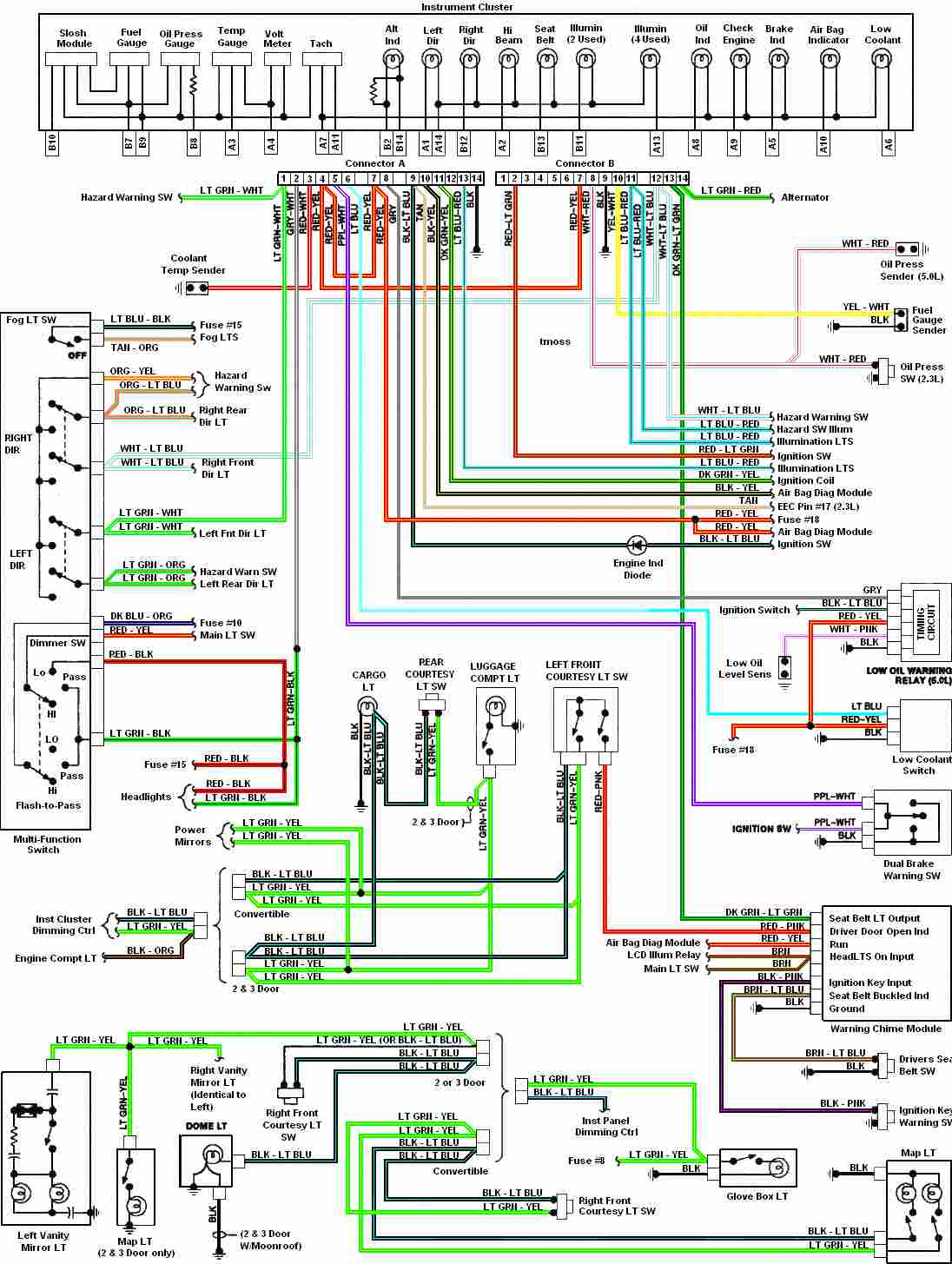When it comes to installing or troubleshooting the radio wiring in a 2007 Ford Mustang, having access to a wiring harness diagram is essential. This diagram provides a detailed layout of the wiring connections, colors, and locations, allowing for a smooth and successful installation or repair process.
Why are 2007 Ford Mustang Radio Wiring Harness Diagrams essential?
- Ensure proper connections: The diagram helps in identifying the correct wires for each component, ensuring that they are connected accurately.
- Troubleshooting guide: In case of any issues with the radio system, the diagram serves as a guide to pinpoint the problem areas quickly.
- Compatibility assurance: By following the diagram, you can ensure that the radio unit is compatible with the vehicle’s wiring system.
How to read and interpret 2007 Ford Mustang Radio Wiring Harness Diagrams effectively
- Identify components: Start by identifying the various components in the diagram, such as the radio unit, speakers, power sources, and ground connections.
- Understand color codes: Each wire in the diagram is color-coded, with specific meanings for power, ground, speaker connections, etc. Refer to the legend for clarity.
- Follow the flow: The diagram shows the flow of connections from one component to another, helping in understanding the wiring layout.
How 2007 Ford Mustang Radio Wiring Harness Diagrams are used for troubleshooting electrical problems
- Identifying faults: By following the wiring diagram, you can identify any faults or loose connections in the radio system.
- Testing continuity: Use the diagram to test the continuity of wires and components to diagnose and resolve electrical issues.
- Repair guidance: The diagram provides a roadmap for repairing or replacing damaged wiring components effectively.
When working with electrical systems and using wiring diagrams, safety should always be a top priority. Here are some safety tips and best practices to keep in mind:
- Disconnect the vehicle’s battery before starting any electrical work to prevent the risk of electric shock.
- Use insulated tools to avoid short circuits and damage to the wiring components.
- Avoid working on electrical systems in wet or damp conditions to prevent accidents.
- If you are unsure about any aspect of the wiring process, consult a professional mechanic or electrician for guidance.
2007 Ford Mustang Radio Wiring Harness Diagram
2007 Mustang Stereo Wiring Diagram

07 Mustang Radio Wiring Diagram Schematic

Ford Mustang Wiring Harness
2007 Ford Mustang Wiring Harness

Stereo Wire Harness Diagram

2004-2007 Ford Mustang Radio Wire Harness – Metra 70-5521 – – PartsGeek.com
